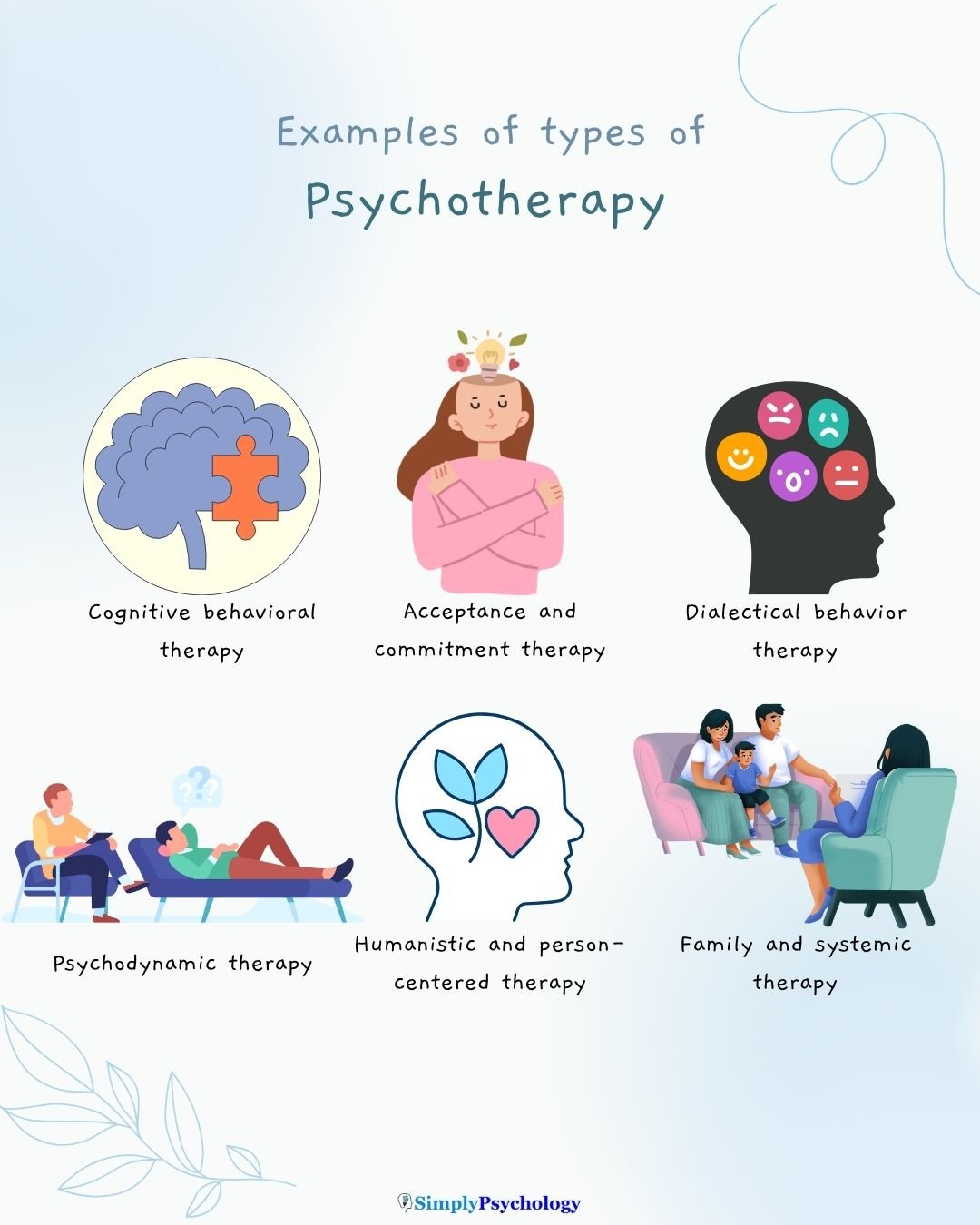Proven Strategies Used in adhd counselling to Improve Focus and Daily Life
Wiki Article
Exploring the Benefits of Virtual Therapy in Modern Mental Healthcare
The increase of virtual therapy marks a considerable change in psychological wellness treatment. It offers enhanced access, allowing individuals from varied histories to seek aid without geographical restrictions. Adaptability in organizing fits varying way of lives, while the comfort of home can cultivate visibility. The ramifications of these changes prolong beyond plain convenience. The progressing landscape of therapy increases crucial questions regarding its lasting impacts on client engagement and treatment results.Boosted Accessibility for All
Standard therapy often offers barriers such as geographical place and organizing disputes, virtual therapy considerably enhances ease of access for individuals seeking psychological health assistance. By getting rid of the demand for physical traveling, virtual therapy allows customers from remote locations or those with mobility difficulties to get in touch with certified specialists. This mode of therapy can get to underserved populations who may do not have local mental health and wellness sources, therefore resolving disparities in access to care. Furthermore, virtual systems can accommodate diverse demands, supplying services in multiple languages and suiting different social backgrounds. Customers can engage with a more comprehensive variety of professionals, giving them with choices that line up with their specific needs and preferences. This increased accessibility cultivates an extra comprehensive atmosphere, enabling people to seek aid without the stigma commonly connected with in-person sees. In general, virtual therapy stands for a considerable innovation in making psychological healthcare extra accessible to all.Flexibility in Organizing Procedure

As virtual therapy continues to acquire grip, its integral adaptability in scheduling sessions verifies to be a significant benefit for lots of individuals. Unlike traditional in-person therapy, virtual therapy permits clients to pick session times that best fit their individual and expert dedications. This versatility fits those with requiring work routines, family obligations, or other dedications that can make attending physical visits testing.
Clients can quickly reschedule or adjust their sessions as needed, minimizing the stress connected with inflexible appointment systems. The schedule of numerous time slots throughout the week, consisting of nights and weekends, additionally enhances ease of access. This adaptability not only urges consistency present however likewise cultivates a greater dedication to the healing procedure. Inevitably, the versatility in scheduling sessions stands for a transformative change in psychological wellness care, empowering individuals to prioritize their health without giving up other aspects of their lives.
Comfort of a Familiar Atmosphere
The comfort of a familiar setting substantially enhances the effectiveness of virtual therapy for many clients. Participating in therapy from the safety and security of their own homes allows individuals to feel more secure, reducing stress and anxiety that may go along with conventional in-person sessions. This experience can assist in open interaction, making it possible for clients to reveal their thoughts and sensations extra openly.Additionally, the visibility of personal products and the capacity to regulate their surroundings can add to a feeling of safety and security and relaxation. Customers often report that remaining in a comfy area enables them to focus more on the healing process as opposed to the setting itself.
Additionally, the casual nature of virtual sessions can assist dissolve obstacles that may exist in a traditional office environment, promoting a deeper link with specialists. Generally, the convenience of familiar surroundings plays an important function in boosting the healing experience and performance for numerous people looking for psychological health support.
Larger Series Of Therapeutic Options
A bigger variety of restorative alternatives appears through virtual therapy, allowing clients to accessibility various modalities that might not be possible in typical settings. This adaptability makes it possible for people to explore varied approaches such as cognitive-behavioral therapy, mindfulness techniques, art therapy, and even specialized interventions like trauma-informed care or dialectical behavior therapy.Clients can choose from a more comprehensive spectrum of specialists, including those who specialize in particular niche locations or certain populations, enhancing the probability of discovering an appropriate match. Virtual systems often offer access to group therapy sessions, assistance areas, and workshops that may be geographically unavailable otherwise.
This range empowers clients to participate in their recovery procedure according to their one-of-a-kind choices and demands, potentially increasing motivation and dedication to therapy. Therefore, the landscape of psychological health care becomes extra inclusive and versatile, catering to a bigger array of private experiences and obstacles.
Decreased Preconception Surrounding Therapy
Accessing therapy via virtual systems contributes to a substantial decrease in the preconception typically connected with mental wellness care. By providing a very discreet and private setting, virtual therapy permits individuals to seek help without the fear of being evaluated or recognized. This privacy attract those who might or else hesitate to go after in-person therapy because of societal perceptions surrounding psychological wellness.As the occurrence of virtual therapy increases, it stabilizes the conversation around psychological wellness, making it an extra appropriate component of daily life. Individuals frequently really feel a lot more comfortable reviewing their experiences on-line, advertising openness and lowering feelings of isolation. The accessibility of these solutions likewise motivates a wider group to engage with psychological health sources, promoting a culture of support instead of embarassment. Ultimately, the increase of virtual therapy plays an important function in reshaping attitudes in the direction of seeking assistance, contributing to a much more accepting society concerning psychological health and wellness difficulties.
Cost-Effectiveness and Affordability

Lowered Session Costs
Several people seeking psychological health assistance locate that virtual therapy considerably decreases session prices contrasted to typical in-person choices. The elimination of traveling costs and time off work usually adds to overall cost savings. Furthermore, several virtual therapists use competitive prices as a result of reduced above costs connected with preserving a physical office. This shift in expense permits clients to access high quality mental health solutions without the economic stress that may come with standard therapy. For lots of, this cost allows a lot more frequent sessions, which can boost therapy results. Consequently, virtual therapy not just equalizes accessibility to psychological healthcare however likewise provides a sustainable financial design that straightens with clients' budget plans, making psychological health assistance much more attainable for a wider target market.Increased Gain Access To Alternatives
While traditional therapy typically presents logistical obstacles, virtual therapy greatly increases accessibility choices for people seeking mental healthcare. By eliminating the need for travel and enabling flexible organizing, virtual therapy suits varied lifestyles and dedications. This accessibility is particularly beneficial for those in remote areas or with movement difficulties. Additionally, the cost-effectiveness of virtual therapy reduces financial stress, making mental health and wellness services more reachable. Several systems supply tiered pricing or moving scale charges, promoting cost. Insurer increasingly identify virtual therapy, more enhancing its financial availability. Overall, virtual therapy not only widens the extent of that can obtain care but additionally addresses economic obstacles, making mental health and wellness assistance extra comprehensive and attainable for all.Enhanced Continuity of Treatment
Enhanced connection of care arises as a substantial benefit of virtual therapy in contemporary mental healthcare. This method enables people to maintain constant communication with their therapists, despite geographical obstacles or organizing conflicts. relationship therapy. The versatility of virtual sessions promotes routine check-ins, which are necessary for keeping track of progression and adjusting treatment intends as requiredFurthermore, low cost therapy electronic health and wellness documents and telehealth platforms facilitate smooth information sharing among treatment suppliers. This interconnectedness ensures that all experts entailed in an individual's treatment are updated on therapy growths, resulting in more coordinated and reliable treatments.
Individuals frequently experience minimized anxiety and raised engagement as a result of the ease of accessing therapy from familiar settings. Such accessibility boosts adherence to therapy routines, inevitably improving end results - relationship therapy. To summarize, virtual therapy not only bridges spaces in psychological health services however likewise strengthens the connection of care, an important element of successful restorative connections
Frequently Asked Questions
Just How Does Virtual Therapy Guarantee Confidentiality and Personal Privacy for Customers?
The existing question addresses the steps virtual therapy employs to safeguard client discretion. Using encrypted systems, safe logins, and compliance with guidelines like HIPAA, virtual therapy assurances that sensitive information remains personal and inaccessible to unapproved people.Can I Switch Therapists Quickly in Virtual Therapy?
Switching therapists in virtual therapy is normally simple. Clients can interact their desire for a change via the system, permitting adaptability in locating a far better match without the logistical challenges of in-person consultations.What Technology Do I Required for Virtual Therapy Sessions?
To take part in virtual therapy sessions, a private usually requires a reliable internet link, a computer or smartphone with a video camera and microphone, and access to a secure video conferencing system defined by their specialist.
Are Virtual Therapy Procedure as Effective as In-Person Procedure?
Current researches show that virtual therapy sessions can be just as efficient as in-person sessions, depending on the individual's choices and scenarios. Aspects such as comfort and accessibility may enhance the general restorative experience for some customers.What Should I Do if I Experience Technical Issues During a Session?
If technological concerns emerge throughout a session, one should calmly connect the trouble to the specialist, effort to reconnect, or switch to a backup technique. Persistence and flexibility are crucial in taking care of these disruptions.Report this wiki page